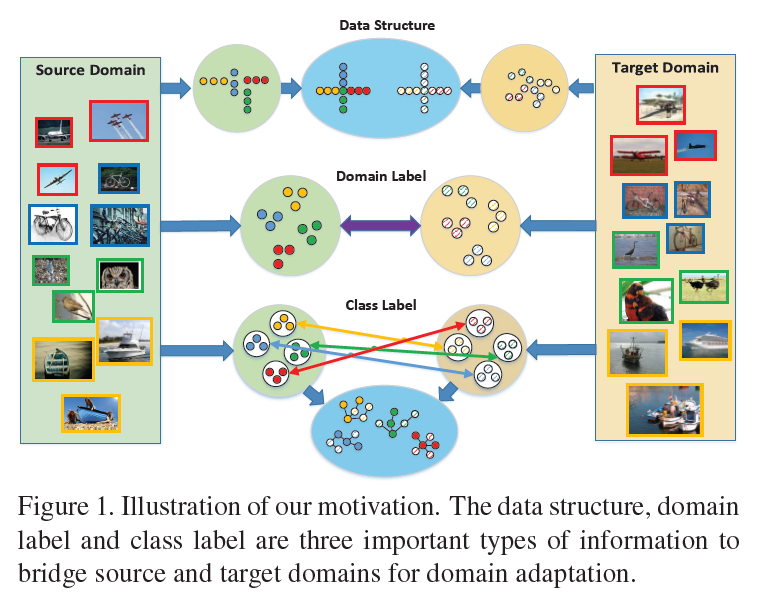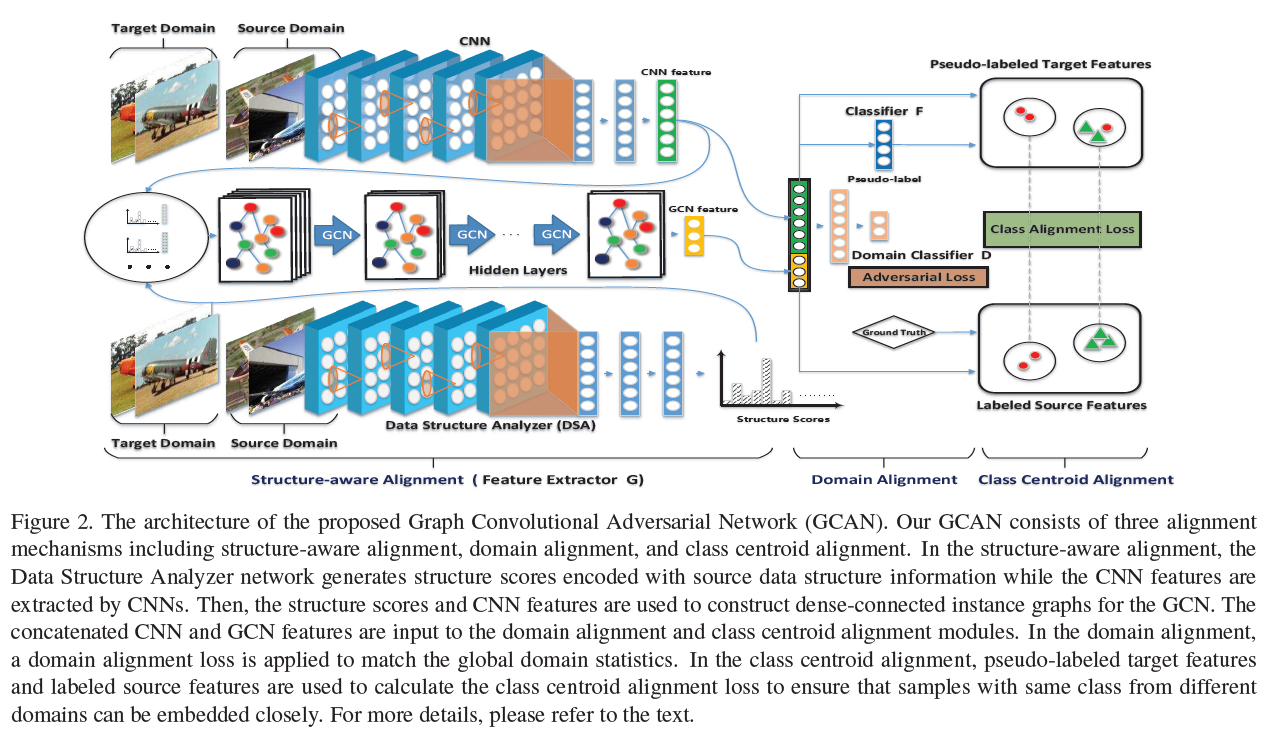[2019 CVPR] GCAN: Graph Convolutional Adversarial Network for Unsupervised Domain Adaptation
Table of content (short-version) [paper]
Summary
- Unsupervised DA에 graph를 도입하여 최고 성능
- Source와 target의 격차 줄이기 위해서는 data structure, domain label, class label을 이용해야 함
[Motivation]

- 전체 프레임워크
- 기존 [2] 방식은 data structure를 고려하지 않음
- [2] 구조와 비슷한데 GCN 만 추가
- 구조적 점수를 뽑은 다음에 A를 형성, feature와 함께 GCN 에 넣음
- GCN layer 1개만 사용 (높이면 성능이 떨어짐)
- 뒷단은 기존과 동일
[전체 프레임워크]

- Loss 4가지
- Classification: source의 cross entropy loss
- Domain alignment: 데이터가 source에서 왔는지 target에서 왔는지 모르도록 학습
- Structure aware alignment: batch 단위로 source 정보에서 label 별로 비슷한 structure 추출하도록 triplet loss 형성
- Class centroid alignment: 같은 label 인경우 feature 비슷하도록 (euclidean distance)
[Transfer 결과]

References
[1] Ma, Xinhong, Tianzhu Zhang, and Changsheng Xu. “GCAN: Graph Convolutional Adversarial Network for Unsupervised Domain Adaptation.” Proceedings of the IEEE Conference on Computer Vision and Pattern Recognition. 2019.
[2] Xie, Shaoan, et al. “Learning semantic representations for unsupervised domain adaptation.” International Conference on Machine Learning. 2018.